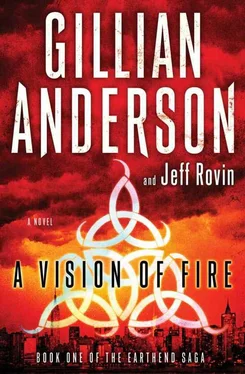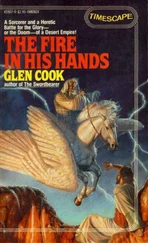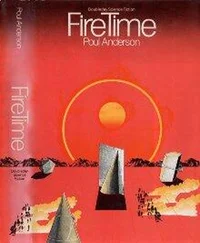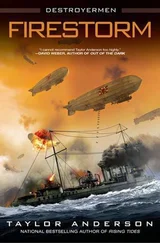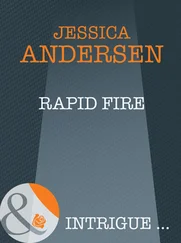His thoughts suddenly felt muddy and something began throbbing behind his eyes, forcing itself forward. Something moving, something wholly other . Rust-red and swirling in a cyclonic cone, as if seen from the top, it was becoming thinner as he descended. Now, a landscape. A manufactured landscape of domes and spires incorporated among what seemed to be natural elements, long curves and slopes. The natural parts were enormous, making the artificial components seem like part of a train set or Christmas nativity—small. Very small. And nearly everything was white, as if the entire image was backlit or bottom-lit, somehow, as if light rays were extending up to create the image, yet no rays were visible.
Is this you or me? he asked the artifact.
Again Arni heard the voices. His orientation with the image changed. It tilted suddenly, in an uncanny lockstep with the sounds, so that Arni was looking up: specifically at a stone pillar about three stories high. It was tipped with something glinting green that made him think of the olivine crystals inside the meteorite. He looked around and saw that similar stone pillars circled the city…
And then the sky seemed to burst red again across its huge expanse. The landscape shifted, revealing a street, a route, at the end of which was white and blue in a riot of motion. This was not him, not his synesthetic response. The colors, the images, the sounds—they were all coming from the rock.
What are you? Arni demanded.
But he never got the answer, never saw what was at the end of the route. Suddenly his right brain and left brain ceased functioning together. His right brain continued to view the image. His left brain died, and he could no longer think to himself about what he was seeing. The right side of his body crumpled so quickly that he fell to the floor. Colors from all over the spectrum flooded his vision but he could not summon the ability to scream. Then just as suddenly, all the colors stopped, every sensation stopped, and he no longer felt his body touching the floor, no longer felt his body at all.
Arni experienced an overpowering urge to sleep. His eyes were shut but he still saw—for another moment. Then his medulla melted, and his corpus callosum, his thalamus, and his pons, and he stopped breathing even as his heart rate exploded.
Moments later he was dead, a trickle of blood and liquid brain dripping from his nose onto the collar of his new white shirt.

PART THREE
Ben heard the soft buzz of his phone, reached for it, and grabbed air.
That potted plant wasn’t his night table and the smell in his nose wasn’t—
This wasn’t his bed. In the dark, he saw the contour of a woman’s bare shoulders and strands of hair.
He remembered… Caitlin… last night… as his phone buzzed again. Where the hell did I leave it…?
He sat up carefully to avoid waking her and looked around, then down. The back pocket of his trousers on the floor was pulsing blue-white. He leaned over for it, snuck his phone from the pocket with two fingers, and sat in the bed so as to shield Caitlin from the glow as he read two texts. The first was sent at 3:02 a.m.: Hangout asap.
The second came a minute later: Under fire now.
The sender was Ignacio de Viana, a friend of Ben’s from Uruguay—
a civilian who, for the last year, had been one of the hundred UN personnel in Jammu, India. “Hangout” did not mean “let’s hang out” and “under fire” was literal, no joke.
Ben texted back: 60 secs.
He pulled on his trousers and eased out of Caitlin’s room. Her apartment was chilly and dim, with the kind of hopeless illumination from streetlights through sheer curtains that made it seem like the night itself was drained, tired. Ben stumbled through the unfamiliar terrain, located his bag, and placed his tablet on the now-familiar dining table. Luckily he had only put the computer to sleep instead of shutting it down, so it was a quick jump to Google Hangouts. While signaling Ignacio for a video chat, Ben used the brief delay to turn on a program that would record the face-to-face call. He quickly pulled his earphones from his bag as well, to prevent sounds from traveling down the hall. Shivering, he threw a nearby afghan over his bare shoulders.
As the call connected, Ben jacked in. Machine-gun fire exploded in his ears and he jerked backward, his stomach in his throat. It took him a moment to realize that it was from the earphones, not the room.
Ignacio appeared on-screen but the camera angle was skewed, only showing part of his face and someone’s living room. Gray smoke was spreading across afternoon sunlight. Ignacio was shouting in Urdu over his shoulder, “Get away from the window!” Someone shouted something back that Ben didn’t quite catch. He would play it back later, enhance the sound.
When Ignacio finally brought the camera to his face, Ben saw that one lens of his glasses was gone and the other fractured. The young man’s typically well-groomed hair was wild and matted on one side with blood. There was a red sheen on his scalp that indicated the wound was fresh and still flowing.
“Jesus Christ,” Ben exclaimed. “Where—”
“Raghunath Bazaar,” Ignacio yelled over the pounding of intermittent gunfire. “I don’t know who showed up first, Indian soldiers or Pakistani, but they’re all freaking insane, Ben. They’re shooting civilians at random.”
There was a loud pop outside the room and Ignacio dropped from the bottom of the screen. Ben heard shouts from the left and right sides, different voices, angry voices. There were more pops, then silence. Were they hit? Or had they just taken cover?
Ben watched anxiously as pictures fell from the wall across the room. Then the shock of a grenade blew into his ears. He recoiled and his hands flew up to yank the headphones from his ears. After a second, catching his breath, he replaced them.
“Ignacio, are you safe?” he shouted.
After a troubling delay, Ignacio called, “Yes.” He repositioned himself on the screen. “I’m across the street from the fighting, up the stairs. It’s all across the street. Ben, you have to tell the assembly this is happening! It’s like we’re in bloody Afghanistan. No rule of law here. None.”
“Where are the rest of the peacekeepers?”
“The main body is about ten miles away. Ten of us were making a routine tour when a bomb went off.”
“Hold on,” Ben said.
“I’m not going anywhere, trust me.”
Ben texted Ambassador Pawar. Within a minute he had added the diplomat to the video chat. Ignacio’s camera angled steeply as he stood up, keeping it in his hand. There was a glimpse of the silks of a sari, a woman pulling at his arm.
“Ignacio, I’ve got Ambassador Ganak Pawar, can you see him?”
“Yes.” Ignacio coughed. “I’m told we have to go, the smoke in the room is getting thicker.”
“Mr. de Viana, can you get to a safe place?” said the ambassador.
“The woman who lives here says they are going out the back, to the main road, where people are forming caravans.”
Ignacio’s camera swerved again and Ben heard a woman shout in Urdu, “The floor, the floor!” The camera dipped; Ignacio must have kneeled for cover again. A window came into view, showing the pockmarked onion domes of temples and shattered rooftops. Then the lens dropped to the retail shacks in front of the temples and the wide street. They looked as though they’d been toppled by an earthquake—splintered, crushed by stone from an adjacent structure. Ben counted five bodies, wide, dark stains of their blood on the street, and others who were still crouched, wounded and screaming, in the doorway of a cinema. Six soldiers ran through the area, guns at their hips, ready to fire in an instant. One of them jerked to a stop, spun around, and shot his gun at second-floor windows above a shop.
Читать дальше
